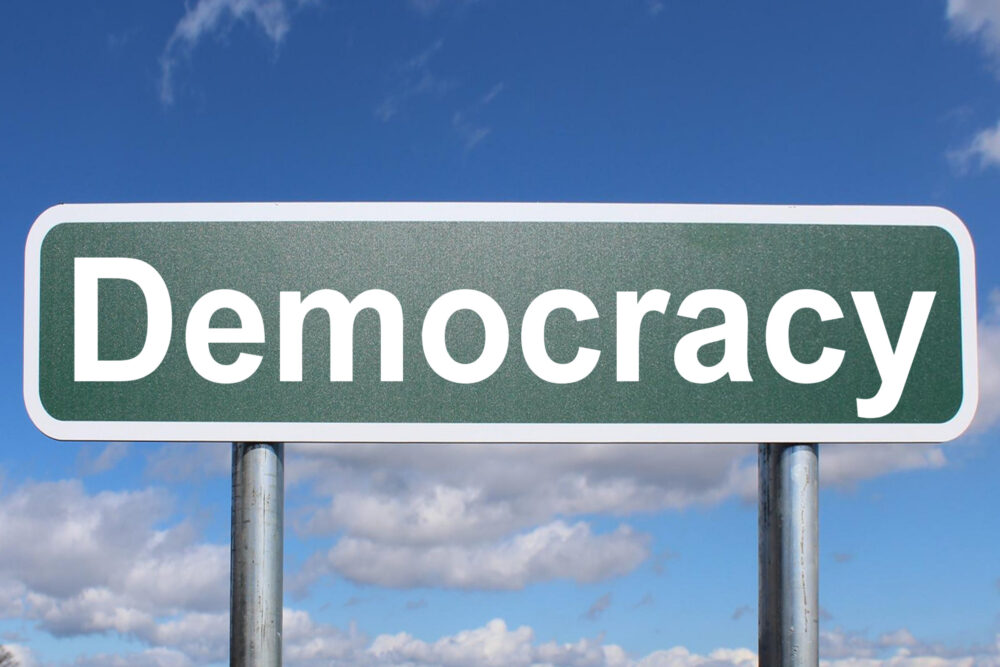Following the Oct. 7 Hamas attack on Israel, the Harvard Undergraduate Palestine Solidarity Committee penned a letter calling Israel “entirely responsible” for the attack. It was followed by swift and intense backlash. The student signers were “doxxed,” and Jewish alumni demanded a list of the students in order to avoid inadvertently hiring one of them. The animosity between supporters of Palestine and supporters of Israel has grown to particularly concerning heights on college campuses that have led to clashes over censorship.
Without addressing the merits of either side’s arguments, the reaction that stemmed from such intense disagreement illustrates the normalization of ideological insulation in our country. We have become quick to disregard those with views we disagree with rather than attempt to coexist under a shared understanding of the essential role free speech has in a democracy. The lines in the sand have been distinctly drawn and we readily and willingly categorize people as “with us” or “against us.” This mindset is, at its best, at odds with the founding ideals of our country and, at its worst, an imminent threat to well-functioning democracies on the national and international scale, hindering the peaceful resolution of disputes and diplomatic relations. Rather than settle deeper into the folds, it is necessary to work toward finding some semblance of commonality — enough that reaching across the aisle does not entail dislocating your shoulder. Though political scientists have theorized where these commonalities may be found, these theories are not entirely compatible with the reality of a dynamic and nuanced space. These false commonalities are therefore incapable of bridging the gap.
As a staunch supporter of freedom of speech, I deeply appreciate the Communists handing out fliers on campus as much as I do the Young Republicans recruiting for meetings on the same corner the next day. The beauty of our country lies in our ability to express separate opinions from each other and from our government, but in no way should that limit the discussion across the ideological spectrum. As much as the members of the MAGA party insulate themselves from those who disagree with them, there is also blame to be placed on the opposite end of the spectrum for doing the same. Surrounding yourself with “yes-men” only serves the continuity of factions that refuse to have anything to do with each other so long as they disagree.
No one person can enlighten millions of people who feel politically and personally isolated into coming together and singing “Kumbaya.” However, that does not mean each of us cannot or should not search for alternative perspectives that might serve to realign a country divided. This is how I first came across horseshoe theory. It’s a political and sociological theory that imagines the ideological spectrum in the shape of a horseshoe: Those on the far right and those on the far left bend toward each other rather than remain on purely opposite ends.
In the American context, one of the most commonly identified differences between the Left and Right is the proper role of the government in regulating citizens’ lives. The Right believes there should be less interference by the government in personal lives, while the Left believes the government should interfere when necessary to ensure the protection of individual rights. But horseshoe theory points out that those on the Left display some anti-state tendencies, too, in their calls to defund the police or abolish the prison system. Another example of this is the perception of cancel culture. At the core, cancel culture is just a statement of disagreement with the ideas and people one does not like, and neither the Left nor the Right are opposed to doing away with the ideas and people they do not like. Horseshoe theory would posit that ideological insulation does not account for the commonalities of values in the extremes on both sides.
Ideological insulation is not a new concept, but rather one that has been reinforced over years of organizational strategy most commonly used to deign certain perspectives as conservative or liberal. The conservative and liberal legal movements have taken clear stances on “hot-button” issues such as gun control, abortion, voting rights, and federal regulation that serve to represent their own political ideology, but also to contrast and invalidate the other side’s opinion. Truly, the beauty of a democracy is that we are capable of holding differing opinions while participating effectively and equally in society, but what happens when those beliefs create such a great divide that we can no longer execute the goals of democracy? The current partisan nature of the United States pits people with opposing views against each other (sometimes physically) and stalls the cooperation essential to a functioning government.
All that being said, horseshoe theory, too, does not perfectly or fully encapsulate the activities and values of political parties. For all the similarities, there are still incredible and indelible differences across the ideological spectrum. Defunding the police and abolishing the prison system emphasizes largely different fundamental values than the general conservative push for less government interference. Cancel culture has arisen out of the severity of such fundamental differences. Horseshoe theory is tempting as a method to bridge the divide, but research has shown otherwise. A recent study published in Political Research Quarterly found antisemitism to be a rarity on the Left and more commonly held by the Right. Though the study hypothesized that the ideological left’s dislike for the Israeli government might induce more antisemitism, it found that the ideological left does not construe its dislike for Israel as dislike for American Jews. The ideological right, on the other hand, assigns stereotypes and thus moral value to American Jews that lead to antisemitic views. It cannot be denied that certain and opposing manifestations are present on the Left and Right. It is therefore clear that applying horseshoe theory is not an overarching solution to the divisiveness our country currently faces. There are gaps in horseshoe theory that do not account for the technicalities of the differences in moral methodology, or how the ideological left and right assign value to people and ideas.
Another study in Belgium emphasized that there is a considerable amount of variation in the extremist camps of both sides — both in ideology itself and the value systems they use to arrive at that ideology. This, too, is evident in the current discourse on the Israel-Palestine conflict. The subject has divided liberals and demonstrated their capacity for antisemitism, as outlined in the Political Research Quarterly study. Horseshoe theory does not accurately describe the political climate around this issue, but the issue demonstrates the necessity of meaningful and productive interactions between the conglomeration of contradicting views that exist side-by-side with the few that unify political camps in order to enact democracy while doing away with discriminatory hate. Political labels are psychologically necessary, but they must maintain a level of flexibility to capture the essence of democracy.
Insulation among common identities subjects people to boxes with boundaries that fail to consider the holistic identities of people with a diversity of backgrounds and life experiences. Though finding commonality will be useful to progressive politics, forcing commonality through a faulty theory is not an efficient or effective way to coalesce.
“There are dangers in concepts like horseshoe theory that assert we do not need to look far for commonalities. Our commonalities will be found at the depths of our philosophical existence, the very reasons we choose to participate in a democracy.”
There is a larger philosophical conversation to be had about the methods used to design the value systems that dictate ideology. Indeed, historical inequalities typically play a large role in such beliefs. A difference in value systems is thus inevitable in our country’s political system. However, our founders expected and intended for this to be the case, as implied by the rights enshrined in the First Amendment. What they did not intend was for these differences to relegate an ineffective government. A representative government cannot act for the purpose of two opposing collective interests simultaneously. It is up to the people not to convince others to accept their own view but to understand the source of the opposing view. There are dangers in concepts like horseshoe theory that assert we do not need to look far for commonalities. Our commonalities will be found at the depths of our philosophical existence, the very reasons we choose to participate in a democracy. There is no clear solution to our current division, but it will not be found by censoring speech out of fear or dislike.






